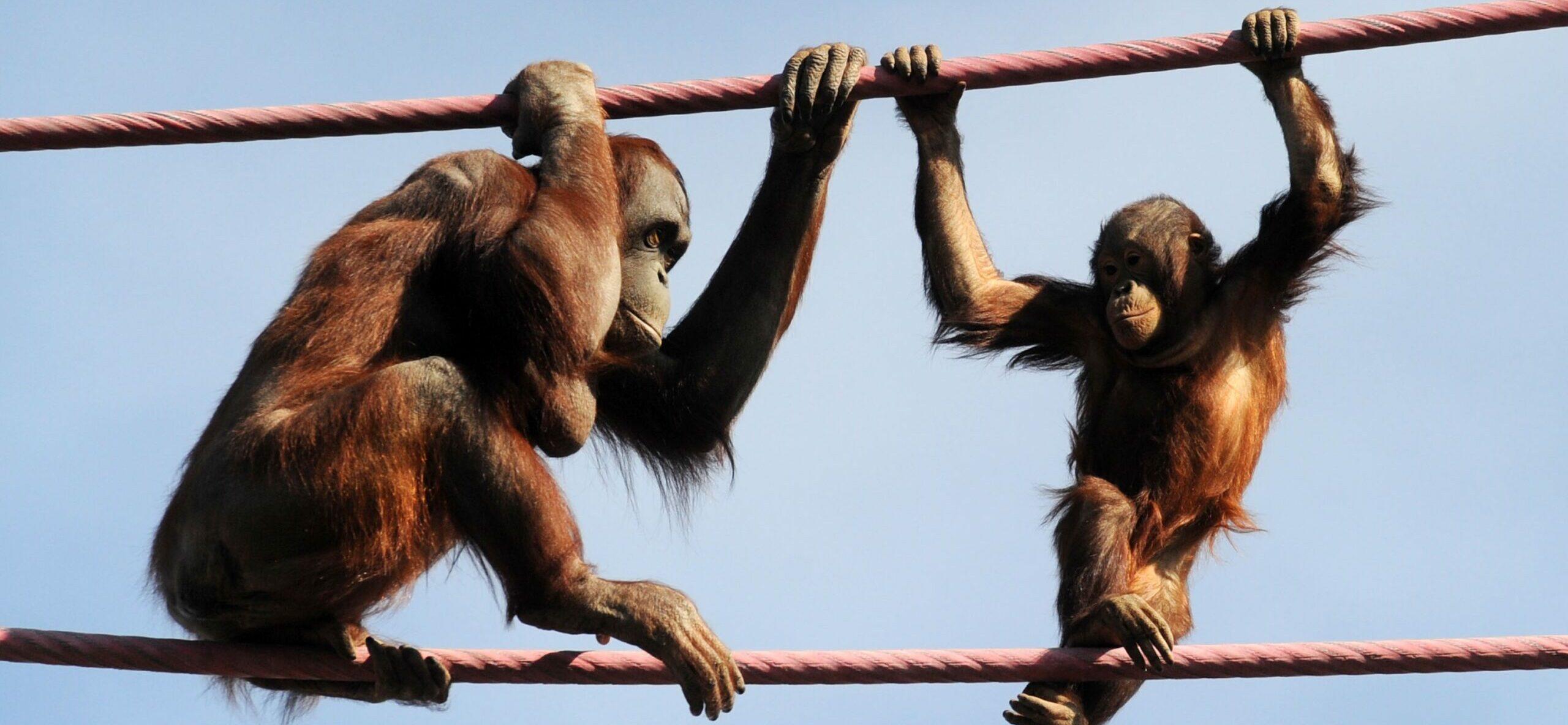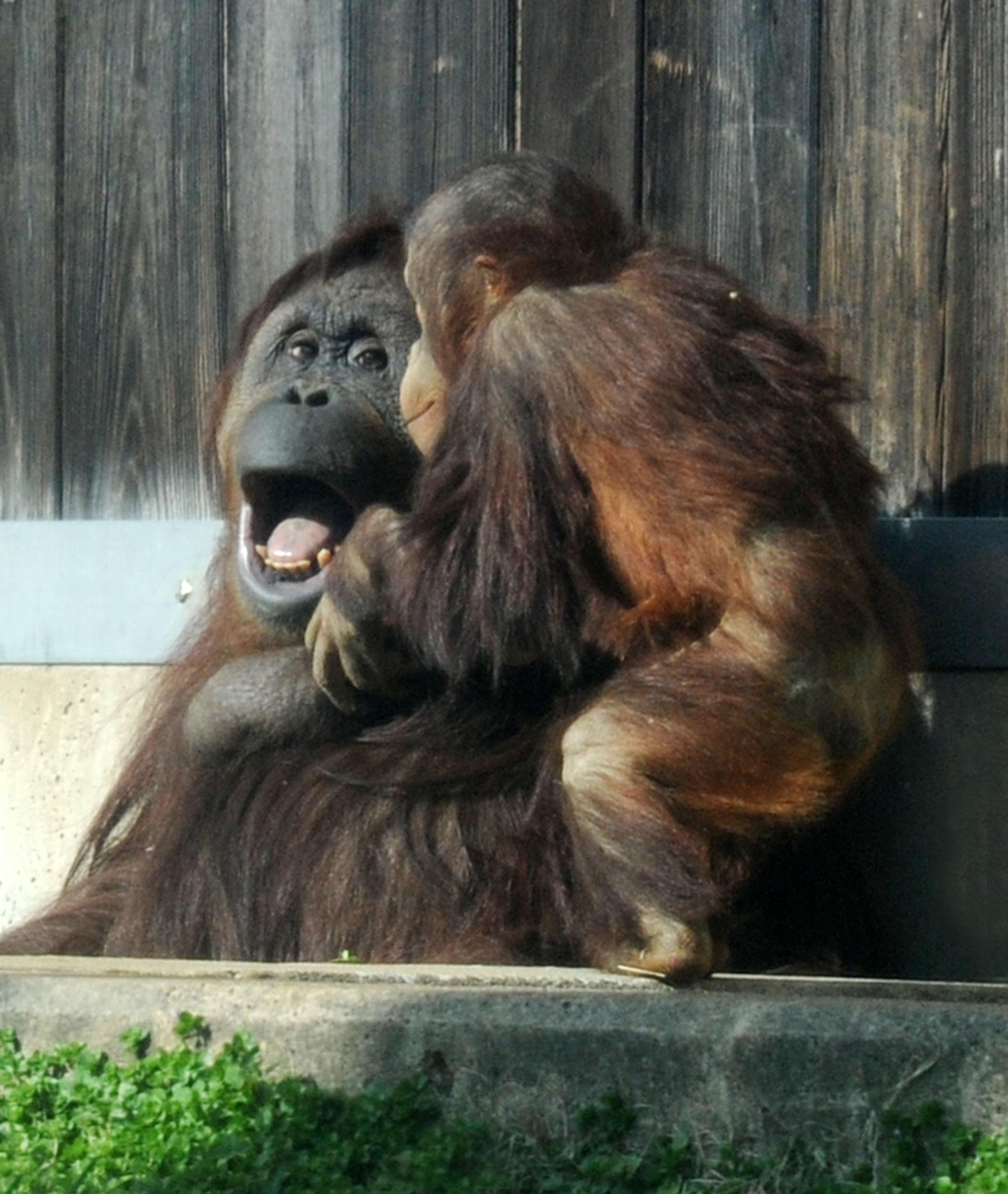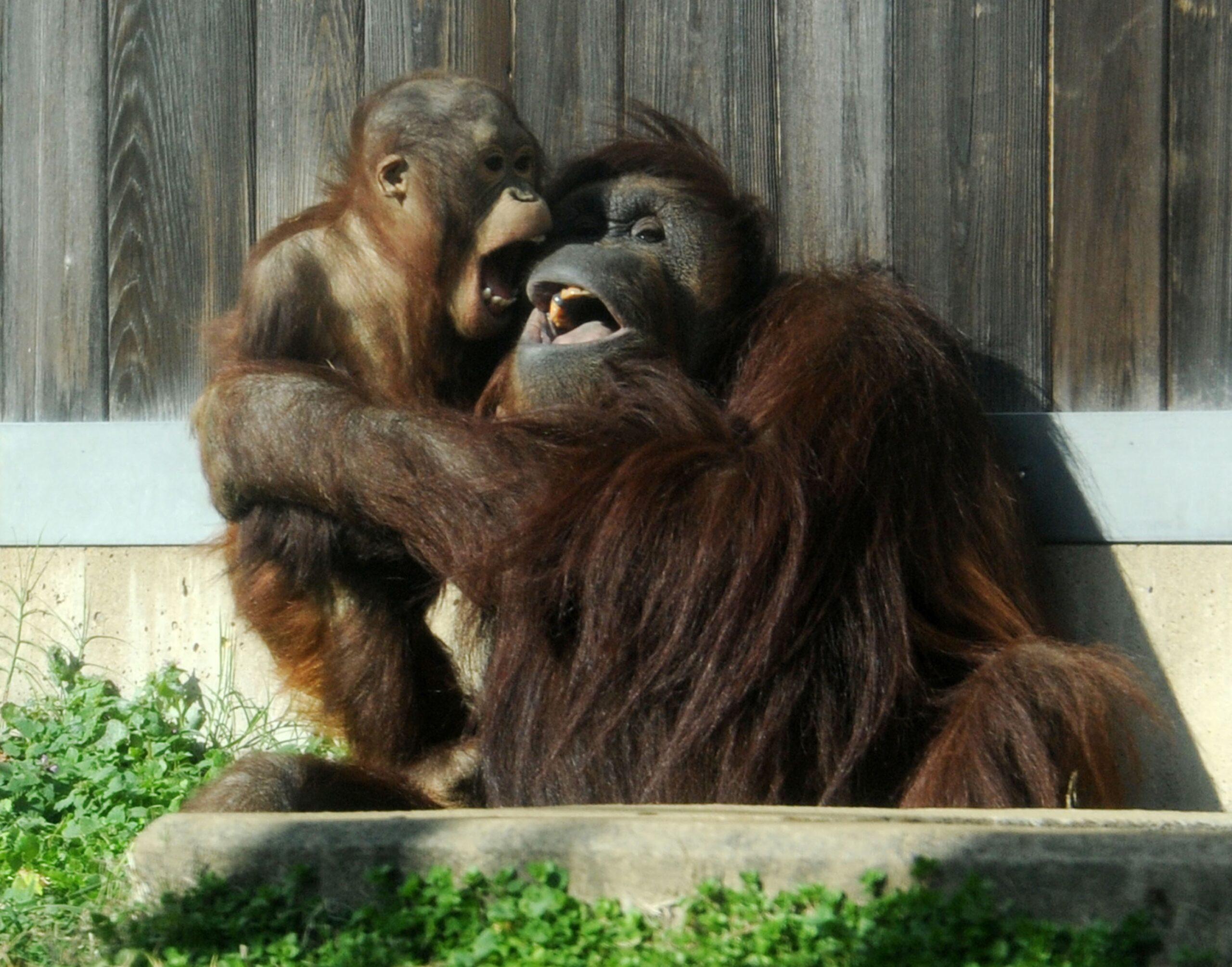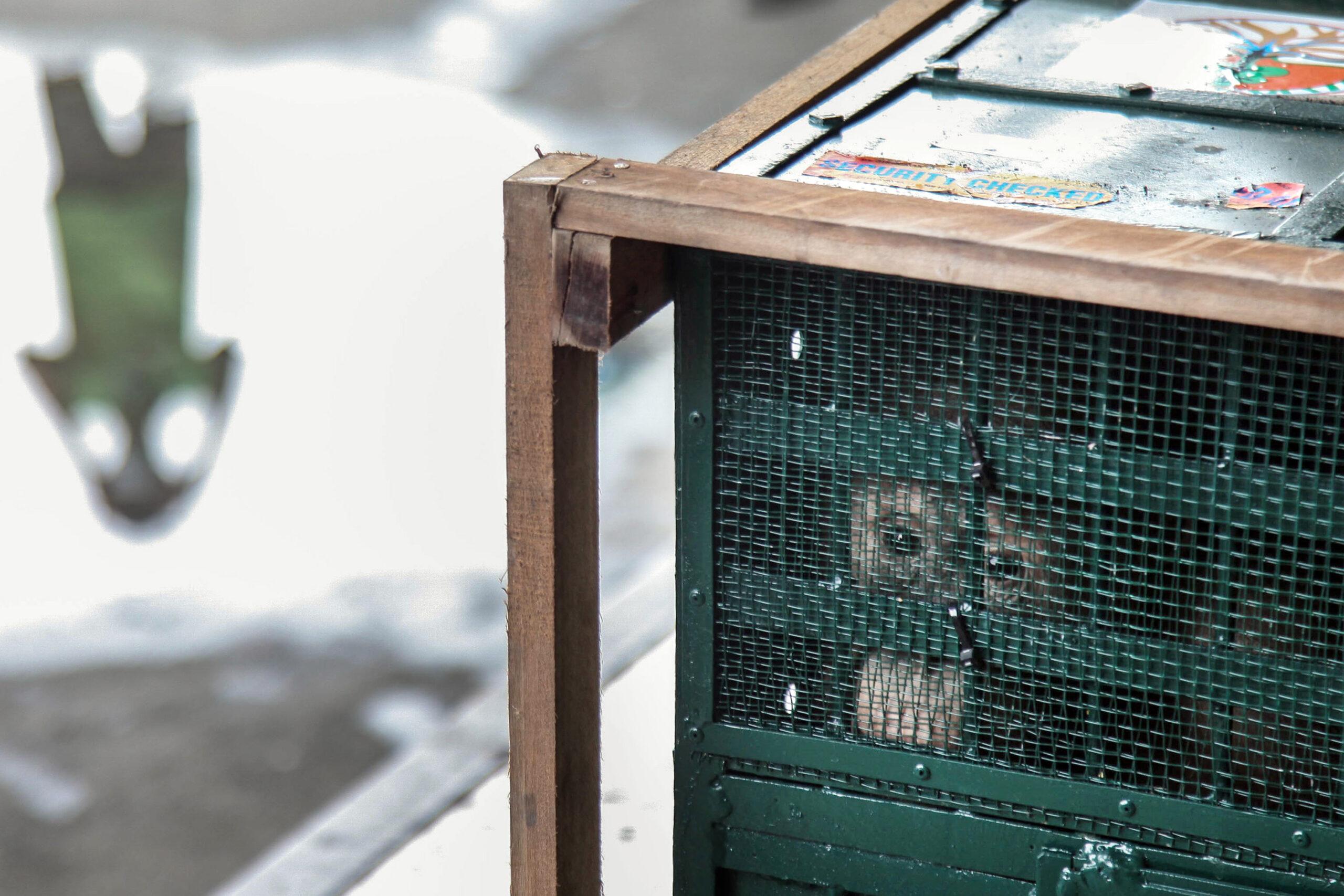WATCH Endangered Orangutan Cuddle With Her Newborn Baby
By Kristin Myers on April 20, 2022 at 8:30 AM EDT

A critically endangered orangutan named Kitra is doing well.
The 20-year-old Bornean orangutan recently gave birth to a new baby at the Oregon Zoo, according to a recent press release. The zoo said that the baby orangutan was born on April 13 at around 11 AM. The first-time mom and her new bundle of joy are reportedly both doing well.
Scroll to the bottom to see the adorable video!
Critically Endangered Orangutan Becomes First-Time Mom

The Blast has received footage of the mother and the baby cuddling together in the behind-the-scenes maternity den, which is off-limits to the public to guarantee that Kitra can get some privacy as she cares for her newborn.
Kate Gilmore, who oversees the zoo’s primate area, said, “We’re all pretty excited about it. It’s great to see Kitra taking such good care of her baby. There’s still a lot that could happen, so we’re being very cautious and giving her as much quiet time as possible. But so far she seems to be taking to motherhood quite well.”
Asaba Mukobi, a senior keeper, agreed. “We couldn’t ask for anything more,” Mukobi said. “She pulled the baby close to her right away, and the baby appears to be strong and healthy.”
It can be difficult for first-time mothers to get the hang of parenting skills, like lactation. Caregivers are hopeful that Kitra might have picked up a thing or two from watching Kera Wak, another orangutan, raise her baby at the Cleveland Metroparks Zoo in 2014.
Oregon Zoo Helped First-Time Orangutan Mom Prepare For Motherhood

The Oregon Zoo established a special care team to care for Kitra’s health, which included voluntary ultrasounds so that staff could measure the baby’s progress. Using orangutan “stuffies” created by zoo volunteers, her care team taught Kitra how to hold a baby when nursing and how to give her baby to staff once she felt ready so they could monitor its health.
Right now, the gender of the new baby is currently unknown. The mother and baby are off in the private maternity area to give them a chance to bond privately, although the zoo staff is still keeping an eye on them to make sure all is well.
“We will be watching to assess their progress,” Gilmore said. “The first few days are especially critical. Our care staff and the veterinary team have been dedicated to giving Kitra everything she needed for a successful birth. Thankfully, she hasn’t needed much help from us so far. She’s been doing a great job by herself.”
Zoo staff have yet to determine when the mother and baby will make their public debut.
Everything You Wanted To Know About Orangutans

Orangutan gestation is a little shorter than human gestation, around 8.5 months. A typical baby will weigh a little over 3 pounds when they’re born. For the first two years of their life, babies are completely dependent on their mothers to give them food and care.
Kitra arrived at the Oregon Zoo in 2015 to join Bob, the baby’s father, who had arrived from South Carolina’s Greenville Zoo in 2014. The move was made based on a recommendation by the Association of Zoos and Aquariums’ Species Survival Plan for orangutans.
The AZA has established Species Survival Plans for many threatened or endangered species to ensure the long-time survival of these endangered animals. The Species Survival Plan also supports field projects, research, and public education of critically endangered species, like the orangutan.
Orangutans are critically endangered because most of their forest habitat has been stripped away due to logging. Many orangutans have lost their homes, which have been turned into oil palm plantations. The press release reported that 90% of the world’s palm oil production comes from the only two islands that orangutans call home. In addition to deforestation, orangutans also have to worry about hunters, who often kidnap young orangutans to sell illegally.